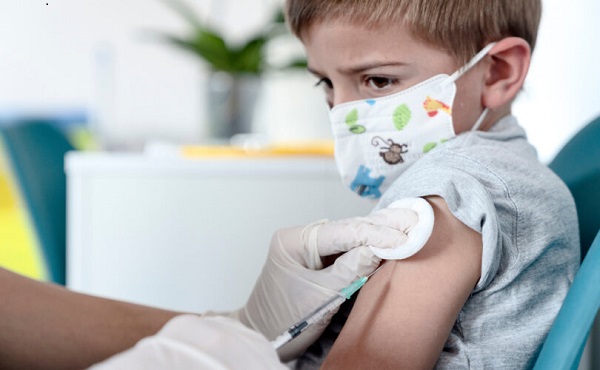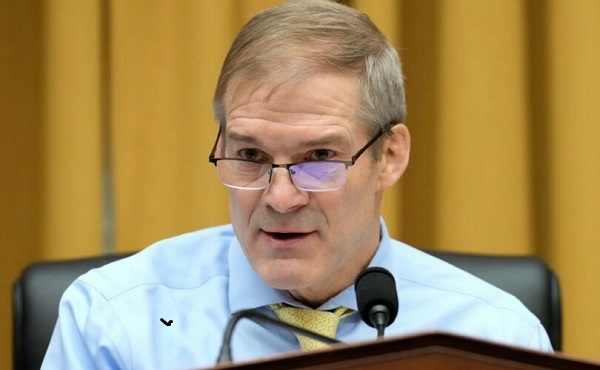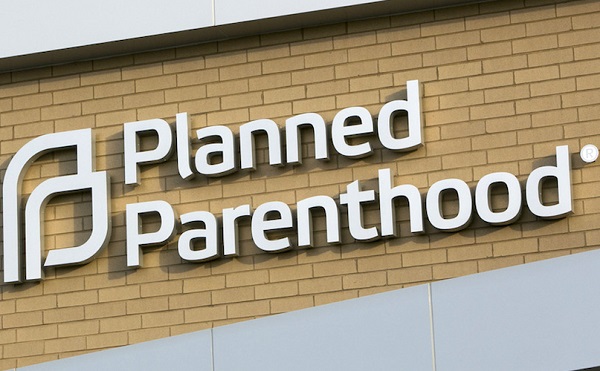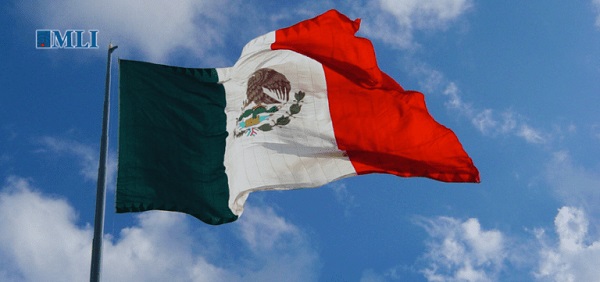Alberta
“Ontario Can’t do it Alone” – Fairness Alberta Expands with Eastern Canada Campaign

It has been just over four months since the launch of Fairness Alberta, a non-partisan Proudly Canadian, Fiercely Albertan organization, in May 2020. Fairness Alberta promotes education and discussion to combat biased government policies and regulations that restrict Alberta’s economic growth and prosperity. By highlighting Alberta’s $324 billion net contribution to the Canadian economy from 2000 to 2019, FA’s mandate is to “inform Canadians about the magnitude of the contributions Albertans make to Canada, while educating Canadian’s about the damaging fiscal, trade, energy, procurement, and infrastructure policies that chronically undermine Alberta’s – and Canada’s – potential.”

Dr. Bill Bewick, Director of Fairness Alberta
The public response to the organization throughout Alberta and across Canada has been overwhelmingly positive, according to Bill Bewick, Executive Director of Fairness Alberta. “Our factual approach is agreeable,” he says, “and even people who are skeptical of Alberta demanding more from the country are willing to listen and learn.”
On September 21, Fairness Alberta expanded into eastern Canada with the launch of their Fall 2020 Campaign in Ontario. The two-part billboard series in Toronto and Ottawa is designed to illustrate just how much Albertans have helped Ontarians carry the fiscal load in the federation over the last decade. “Many people are surprised by the fiscal contributions of each province given the size difference,” says Bewick, “people assume Ontario makes the biggest contribution, but that’s just not the case.”
From 2007-2018, Ontario contributed $98 billion net and Alberta contributed $240 billion net to the country, while the remainder of the provinces have received a combined total of $370 billion.
 As all Canadian provinces face the daunting road to recovery following the destructive economic impacts of COVID-19, the dissemination of accurate information regarding the crucial role of Alberta in the nation’s recovery remains crucial. Arguably even more so since the recent Throne Speech, delivered by Governor General Julie Payette on September 23, has been widely criticized for once again ignoring the contributions and needs of Albertans in favor of new policies that will further restrict productivity in Alberta by targeting natural gas.
As all Canadian provinces face the daunting road to recovery following the destructive economic impacts of COVID-19, the dissemination of accurate information regarding the crucial role of Alberta in the nation’s recovery remains crucial. Arguably even more so since the recent Throne Speech, delivered by Governor General Julie Payette on September 23, has been widely criticized for once again ignoring the contributions and needs of Albertans in favor of new policies that will further restrict productivity in Alberta by targeting natural gas.
Premiere Jason Kenney openly criticized the Throne Speech and the clean-fuel standard, stating, “We got a litany of policies that would strangle investment and jeopardize resource jobs when we most need the industry that generates 20 percent of government revenues in Canada” (1).
Fairness Alberta has responded similarly to developments from the recent Throne Speech, arguing that Alberta’s role in national recovery cannot be overstated or ignored. “Alberta is an engine in the fragile Canadian economy,” says Bewick, “If that productivity is hindered by the new clean fuel standards, no other province will be able to pick up the slack.”
The Ontario campaign is set to continue into the month of November, paired with online advertising that draws targeted audiences to their website, and the remainder of 2020 will see an expansion into British Columbia as Fairness Alberta continues to grow and fight for a fair deal for Alberta within Canada. Bewick believes that “there are millions of fair-minded Canadians out there and showing them the importance of Alberta’s economy is critical right now to ensure the federal government works with Alberta, not against it.”
For more information on Fairness Alberta, visit fairnessalberta.ca.
For more stories, visit Todayville Calgary.
Alberta
Alberta mother accuses health agency of trying to vaccinate son against her wishes

From LifeSiteNews
Alberta Health Services has been accused of attempting to vaccinate a child in school against his parent’s wishes.
On November 6, Alberta Health Services staffers visited Edmonton Hardisty School where they reportedly attempted to vaccinate a grade 6 student despite his parents signing a form stating that they did not wish for him to receive the vaccines.
“It is clear they do not prioritize parental rights, and in not doing so, they traumatize students,” the boy’s mother Kerri Findling told the Counter Signal.
During the school visit, AHS planned to vaccinate sixth graders with the HPV and hepatitis B vaccines. Notably, both HPV and hepatitis B are vaccines given to prevent diseases normally transmitted sexually.
Among the chief concerns about the HPV vaccine has been the high number of adverse reactions reported after taking it, including a case where a 16 year-old Australian girl was made infertile due to the vaccine.
Additionally, in 2008, the U.S. Food and Drug Administration received reports of 28 deaths associated with the HPV vaccine. Among the 6,723 adverse reactions reported that year, 142 were deemed life-threatening and 1,061 were considered serious.
Children whose parents had written “refused” on their forms were supposed to return to the classroom when the rest of the class was called into the vaccination area.
However, in this case, Findling alleged that AHS staffers told her son to proceed to the vaccination area, despite seeing that she had written “refused” on his form.
When the boy asked if he could return to the classroom, as he was certain his parents did not intend for him to receive the shots, the staff reportedly said “no.” However, he chose to return to the classroom anyway.
Shortly after, he was called into the office and taken back to the vaccination area. Findling said that her son then left the school building and braved the sub-zero temperatures to call his parents.
Following his parents’ arrival at the school, AHS claimed the incident was a misunderstanding due to a “new hire,” attesting that the mistake would have been caught before their son was vaccinated.
“If a student leaves the vaccination center without receiving the vaccine, it should be up to the parents to get the vaccine at a different time, if they so desire, not the school to enforce vaccination on behalf of AHS,” Findling declared.
Findling’s story comes just a few months after Alberta Premier Danielle Smith promised a new Bill of Rights affirming “God-given” parental authority over children.
A draft version of a forthcoming Alberta Bill of Rights provided to LifeSiteNews includes a provision beefing up parental rights, declaring the “freedom of parents to make informed decisions concerning the health, education, welfare and upbringing of their children.”
Alberta
Alberta’s fiscal update projects budget surplus, but fiscal fortunes could quickly turn

From the Fraser Institute
By Tegan Hill
According to the recent mid-year update tabled Thursday, the Smith government projects a $4.6 billion surplus in 2024/25, up from the $2.9 billion surplus projected just a few months ago. Despite the good news, Premier Smith must reduce spending to avoid budget deficits.
The fiscal update projects resource revenue of $20.3 billion in 2024/25. Today’s relatively high—but very volatile—resource revenue (including oil and gas royalties) is helping finance today’s spending and maintain a balanced budget. But it will not last forever.
For perspective, in just the last decade the Alberta government’s annual resource revenue has been as low as $2.8 billion (2015/16) and as high as $25.2 billion (2022/23).
And while the resource revenue rollercoaster is currently in Alberta’s favor, Finance Minister Nate Horner acknowledges that “risks are on the rise” as oil prices have dropped considerably and forecasters are projecting downward pressure on prices—all of which impacts resource revenue.
In fact, the government’s own estimates show a $1 change in oil prices results in an estimated $630 million revenue swing. So while the Smith government plans to maintain a surplus in 2024/25, a small change in oil prices could quickly plunge Alberta back into deficit. Premier Smith has warned that her government may fall into a budget deficit this fiscal year.
This should come as no surprise. Alberta’s been on the resource revenue rollercoaster for decades. Successive governments have increased spending during the good times of high resource revenue, but failed to rein in spending when resource revenues fell.
Previous research has shown that, in Alberta, a $1 increase in resource revenue is associated with an estimated 56-cent increase in program spending the following fiscal year (on a per-person, inflation-adjusted basis). However, a decline in resource revenue is not similarly associated with a reduction in program spending. This pattern has led to historically high levels of government spending—and budget deficits—even in more recent years.
Consider this: If this fiscal year the Smith government received an average level of resource revenue (based on levels over the last 10 years), it would receive approximately $13,000 per Albertan. Yet the government plans to spend nearly $15,000 per Albertan this fiscal year (after adjusting for inflation). That’s a huge gap of roughly $2,000—and it means the government is continuing to take big risks with the provincial budget.
Of course, if the government falls back into deficit there are implications for everyday Albertans.
When the government runs a deficit, it accumulates debt, which Albertans must pay to service. In 2024/25, the government’s debt interest payments will cost each Albertan nearly $650. That’s largely because, despite running surpluses over the last few years, Albertans are still paying for debt accumulated during the most recent string of deficits from 2008/09 to 2020/21 (excluding 2014/15), which only ended when the government enjoyed an unexpected windfall in resource revenue in 2021/22.
According to Thursday’s mid-year fiscal update, Alberta’s finances continue to be at risk. To avoid deficits, the Smith government should meaningfully reduce spending so that it’s aligned with more reliable, stable levels of revenue.
Author:
-

 Business2 days ago
Business2 days agoCBC’s business model is trapped in a very dark place
-

 Censorship Industrial Complex2 days ago
Censorship Industrial Complex2 days agoCongressional investigation into authors of ‘Disinformation Dozen’ intensifies
-

 Alberta2 days ago
Alberta2 days agoAlberta government announces review of Trudeau’s euthanasia regime
-

 Alberta1 day ago
Alberta1 day agoAlberta fiscal update: second quarter is outstanding, challenges ahead
-

 Business1 day ago
Business1 day agoTrump’s government efficiency department plans to cut $500 Billion in unauthorized expenditures, including funding for Planned Parenthood
-

 Brownstone Institute18 hours ago
Brownstone Institute18 hours agoFirst Amendment Blues
-

 Crime1 day ago
Crime1 day agoMexican cartels are a direct threat to Canada’s public safety, and the future of North American trade
-

 Bruce Dowbiggin2 days ago
Bruce Dowbiggin2 days agoThe Pathetic, Predictable Demise of Echo Journalism








